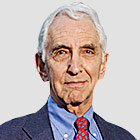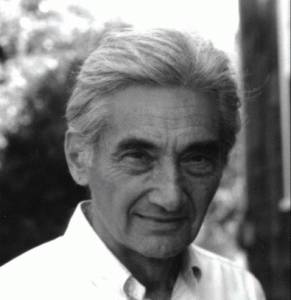1/27/10 6:06 PM
I just learned that my friend Howard Zinn died today. Earlier this morning, I was being interviewed by the Boston Phoenix, in connection with the release in Boston in February of a documentary in which he is featured prominently. The interviewer asked me who my own heroes were, and I had no hesitation in answering, first, "Howard Zinn."
Just weeks ago after watching the film on December 7, I woke up the next morning thinking that I had never told him how much he meant to me. For once in my life, I acted on that thought in a timely way. I sent him an e-mail in which I said, among other things, what I had often told others about him: that he was," in my opinion, the best human being I've ever known. The best example of what a human can be, and can do with their life."
Our first meeting was at Faneiul Hall in Boston in early 1971, where we both spoke against the indictments of Eqbal Ahmad and Phil Berrigan for "conspiring to kidnap Henry Kissinger," from which we marched with the rest of the crowd to make Citizens' Arrests at the Boston office of the FBI. Later that spring we went with our affinity group (including Noam Chomsky, Cindy Fredericks, Marilyn Young, Mark Ptashne, Zelda Gamson, Fred Branfman and Mitch Goodman), to the Mayday actions blocking traffic in Washington ("If they won't stop the war, we'll stop the government"). Howard tells that story in the film and I tell it at greater length in my memoir, Secrets: A Memoir of Vietnam and the Pentagon Papers (pp.376-81). But for reasons of space, I had to cut out the next section in which Howard--who had been arrested in DC after most of the rest of us had gone elsewhere--came back to Boston for a rally and a blockade of the Federal Building. I've never published that story, so here it is, an out-take from my manuscript:
A day later, Howard Zinn was the last speaker at a large rally in Boston Common. I was at the back of a huge crowd, listening to him over loudspeakers. 27 years later, I can remember some things he said. "On Mayday in Washington thousands of us were arrested for disturbing the peace. But there is no peace. We were really arrested because we were disturbing the war."
He said, "If Thomas Jefferson and Alexander Hamilton had been walking the streets of Georgetown yesterday, they would have been arrested. Arrested for being young."
At the end of his comments he said, "I want to speak now to some of the members of this audience, the plainclothes policemen among us, the military intelligence agents who are assigned to do surveillance. You are taking the part of secret police, spying on your fellow Americans. You should not be doing what you are doing. You should rethink it, and stop. You do not have to carry out orders that go against the grain of what it means to be an American."
(Note: You can view every article as one long page if you sign up as an Advocate Member, or higher).






